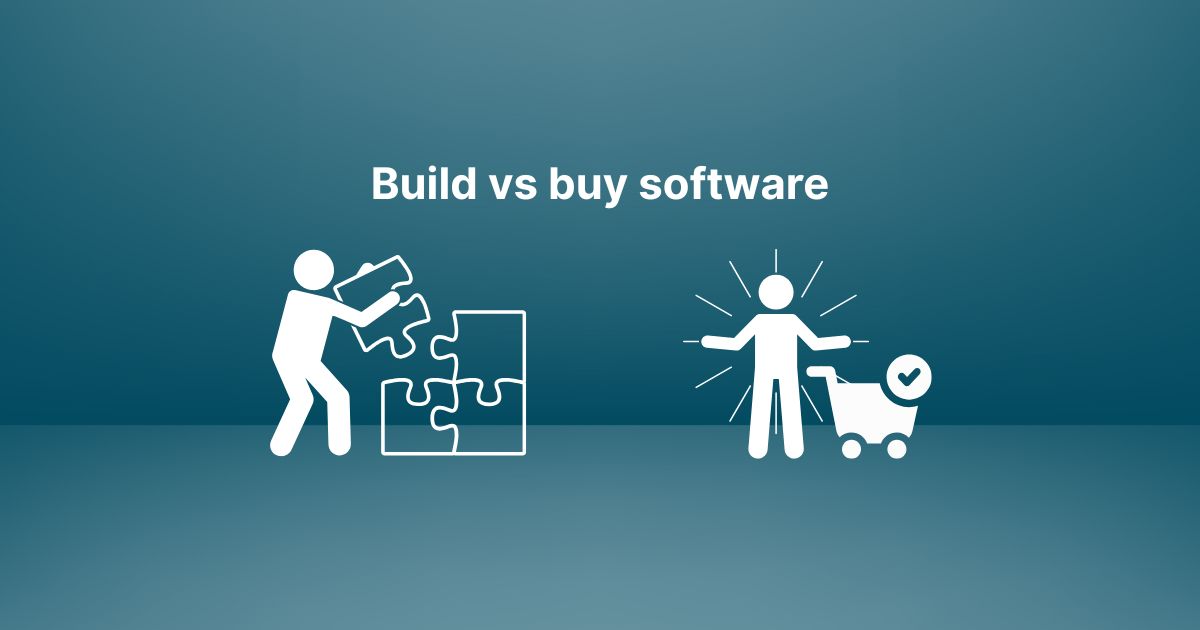Hidden costs of off-the-shelf CRM software: What UK startups should know

Off-the-shelf CRM tools can seem like an easy win for startups, quick to deploy, relatively affordable, and packed with features. But beneath the surface, they often introduce long-term challenges that don’t show up until you're deep in the day-to-day. What starts as a quick fix can turn into a system full of compromises: hidden fees, integration snags, manual workarounds, and poor fit with how your team actually works.
This guide breaks down the real cost of going off-the-shelf from financial surprises and operational friction to compliance risks and offers a more considered approach to choosing the right CRM path for your business.
Hidden CRM costs that quietly drain budgets
Right, so the CRM looks cheap on paper. But here’s where it starts nicking your wallet:
Tiered pricing & missing features: That £20-a-month plan? Turns out it doesn’t do half the stuff you need. Proper reporting? Automation? You’ll need to cough up for a higher tier.
User licences that stack up: Hiring new team members? Great—but your CRM bill just ballooned. Most vendors charge per user, making growth expensive fast.
Add-on charges for basic stuff: Need it to link up with your email or invoicing tools? That’ll cost you. Most of the handy bits live behind a paywall.
Data overages: Your free plan gave you 1,000 contacts. Great, until you pass that and get slapped with monthly overage charges.
Free plan traps: Free is never really free. Once you hit the limits, you’ll either pay or bolt on so many extras it becomes a Frankenstein setup.
Support? That’s extra too: Stuck? The basic plan probably means slow responses and limited help. Priority support usually comes at a premium.
Real Talk: A London-based SaaS startup started with a CRM that looked like a bargain. Within a year, they were shelling out four times the expected cost thanks to add-ons, support tiers, and hitting storage caps. They could’ve built something cleaner for the same outlay.
Common traps startups fall into
These are the classic mistakes we see over and over:
The hidden operational drain
It’s not just the money. These tools can nick your team’s time and energy:
Getting everyone up to speed: Even “easy” CRMs take a while to get your head around. Training, adapting, and setup, it all adds up.
Workflow clashes: If the CRM can’t match your way of working, you’ll spend ages trying to bend it into shape or invent awkward workarounds.
Integration gaps: If it doesn’t talk to your other tools, someone’s doing double data entry or paying for a zap.
Team pushback: If it’s clunky or overcomplicated, your team won’t use it properly. Then the data’s patchy, reports are wrong, and you’re back to spreadsheets.
Ongoing admin load: CRMs need looking after, cleaning up duplicate data, updating fields, and chasing usage. If you don’t stay on top of it, it turns to mush.
Case in Point: A Manchester-based tech firm rolled out a CRM in weeks. Three months later, no one was using it properly, leads were falling through the cracks, and they had to bring in an external consultant just to make it usable.
5 smarter questions startups should ask
1. What features actually matter for my business?
Prioritise what your team really needs, like lead tracking, pipeline visibility, or contact history. Don’t get distracted by extras you’ll never use.
2. How does the pricing really work, and what might it cost over time?
Look beyond the monthly fee, check for user caps, storage limits, support tiers, and upgrade fees.
3. Will this CRM integrate easily with our existing tools?
If it can’t connect to your email, invoicing, or support systems, expect headaches and wasted time.
4. Can it scale without turning into a money pit?
Some tools work for 3 users but choke at 30. Make sure it’s built to grow with you.
5. What happens if we want to leave?
Can you get your data out easily, or will you be hit with export issues and lock-in fees?
Security and compliance traps to watch
Data location: Overseas data storage creates compliance headaches.
Third-party access: Integrations often give external parties visibility, which is potentially risky.
Ease of exit: Make sure data export isn’t painful or costly.
Compliance check: Many CRMs aren’t UK-compliant by default; fixing later is pricey.
Breach response: Breaches mean legal issues, angry clients, and damaged reputations.
So, what’s the better option?
Off-the-shelf tools might get you moving, but they often drag you back later. The hidden costs, fiddly workarounds, and constant patching aren’t worth it for most growing teams.
At Aecor Digital, we help startups figure out whether an off-the-shelf CRM can do the job, or whether you’re better off building something clean and simple that fits from the off. We work with you to spot the pain points, clean up the process, and build software that fits your team like a glove.
Ready to sort out your CRM?
Drop us a line. Whether you're sizing up off-the-shelf options or considering building your own, we’ll help you pick something that actually fits, scales with you, and won’t need endless fixes.
Related insights
What our clients say













